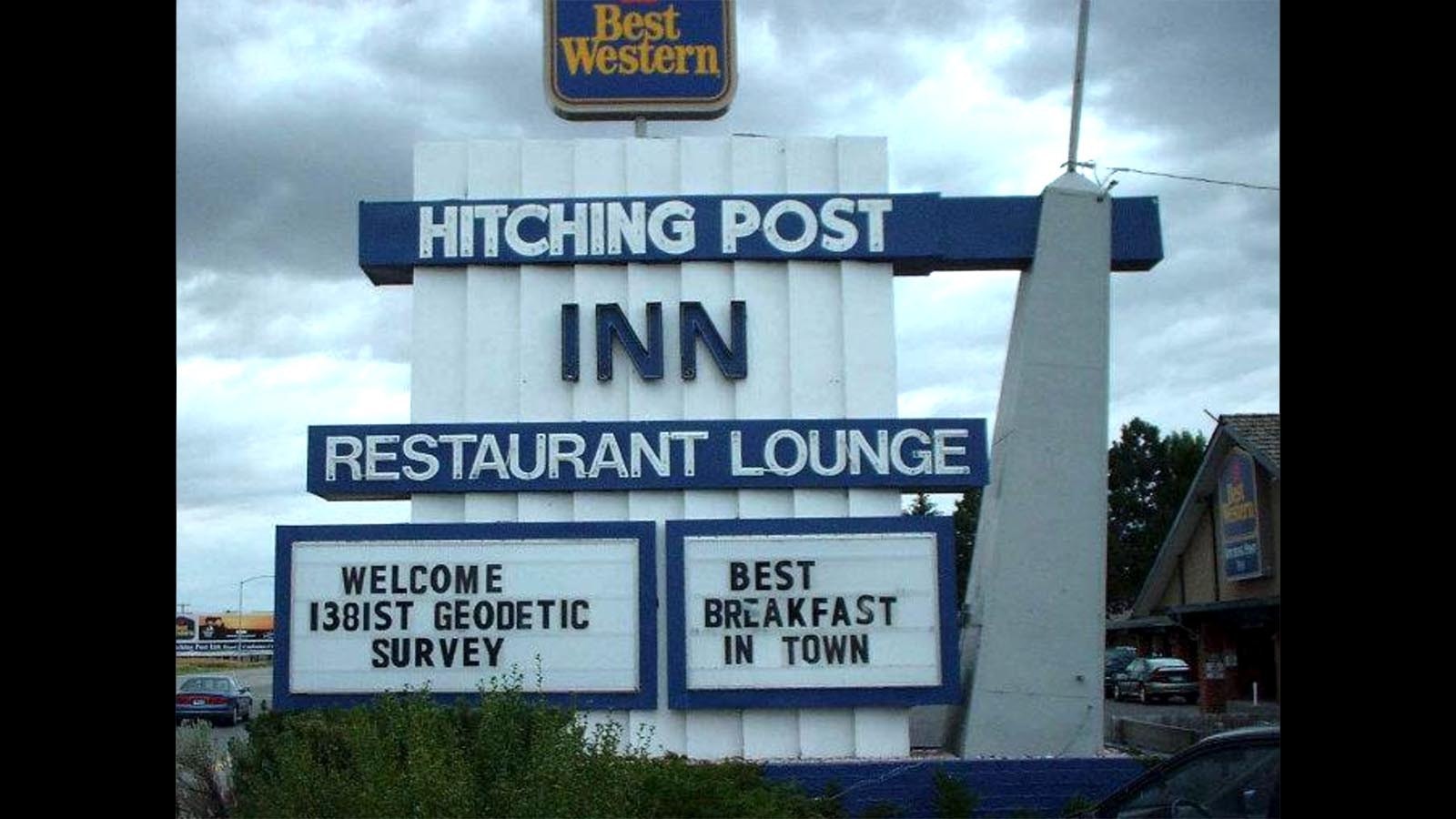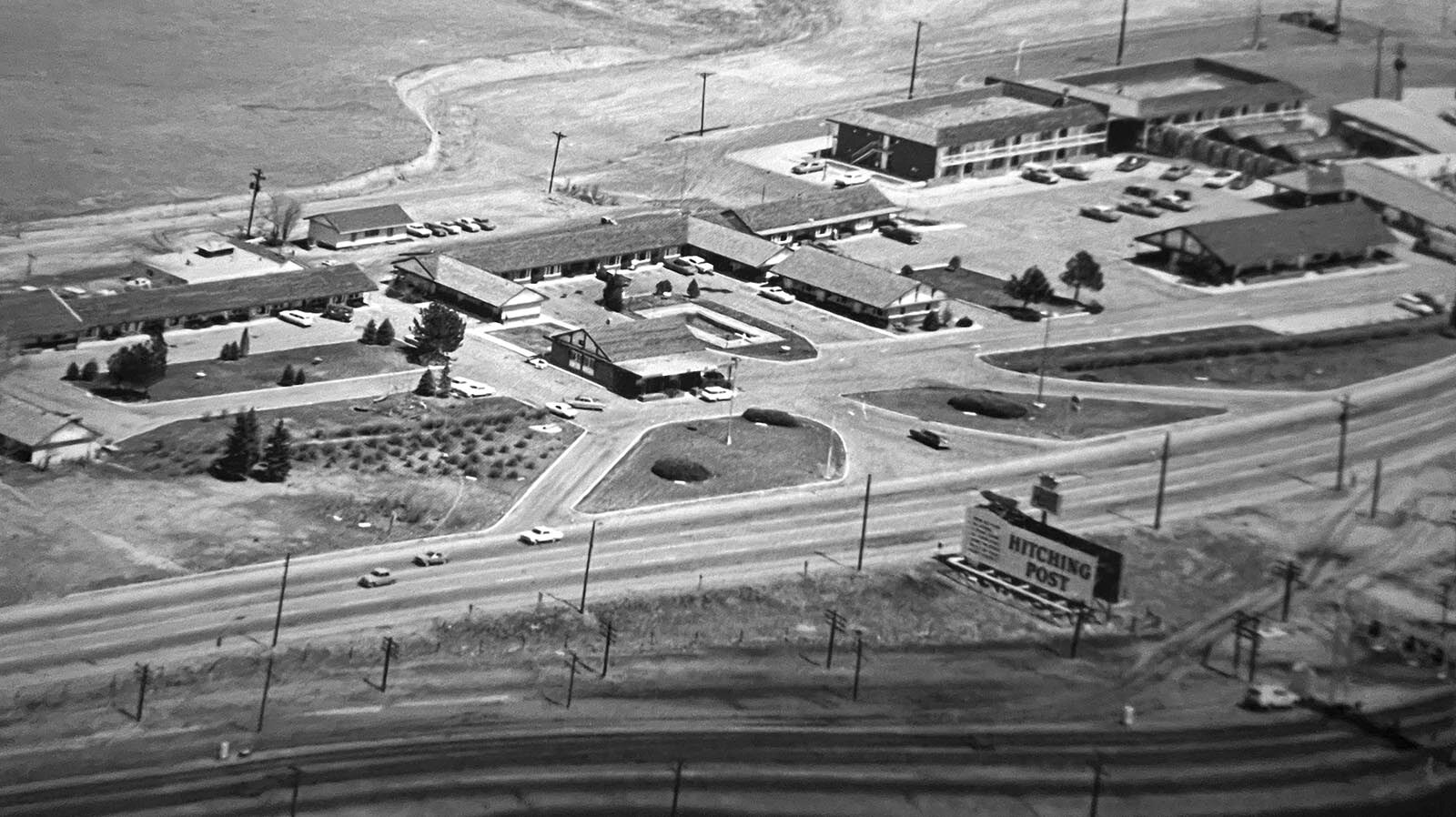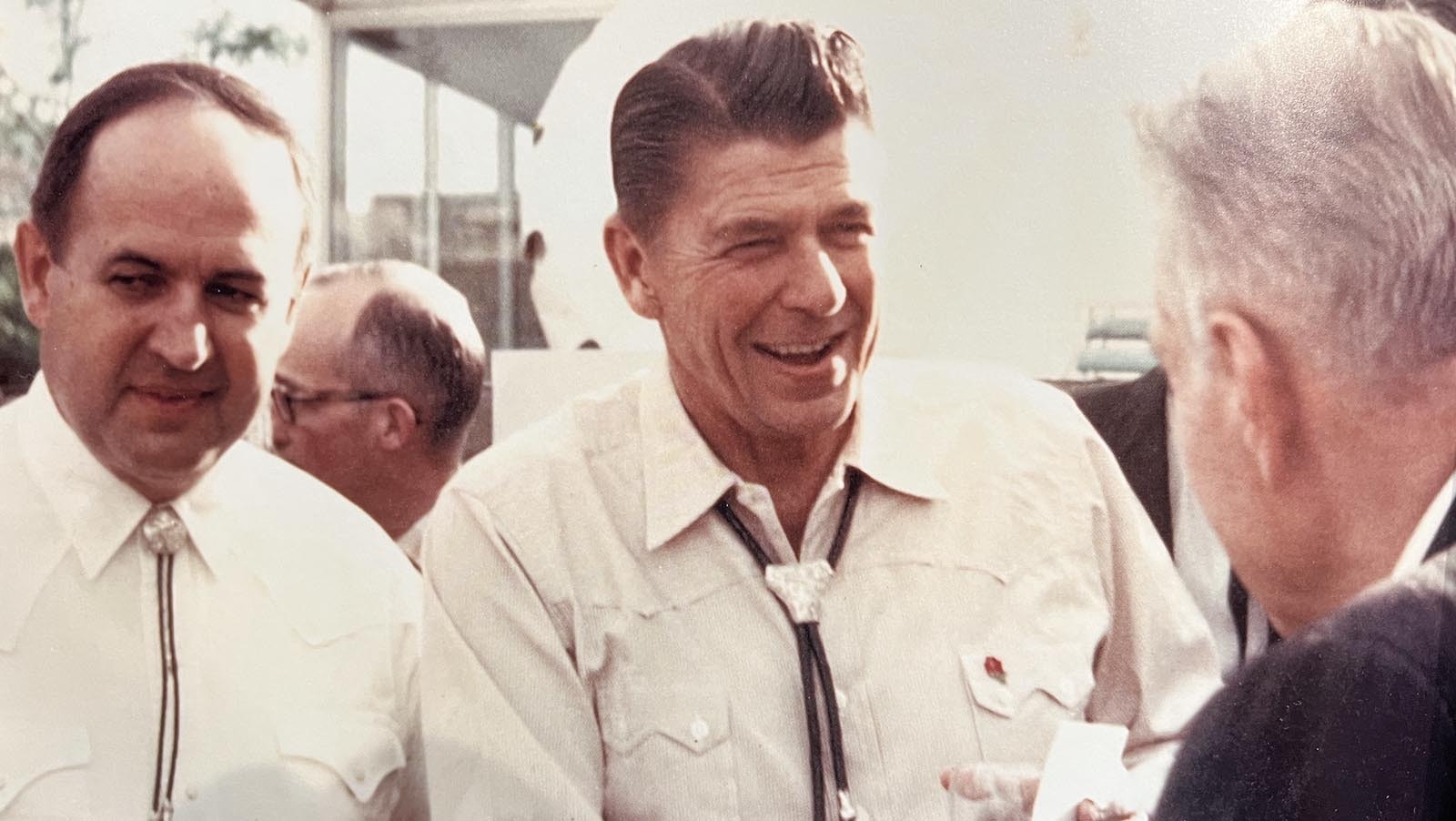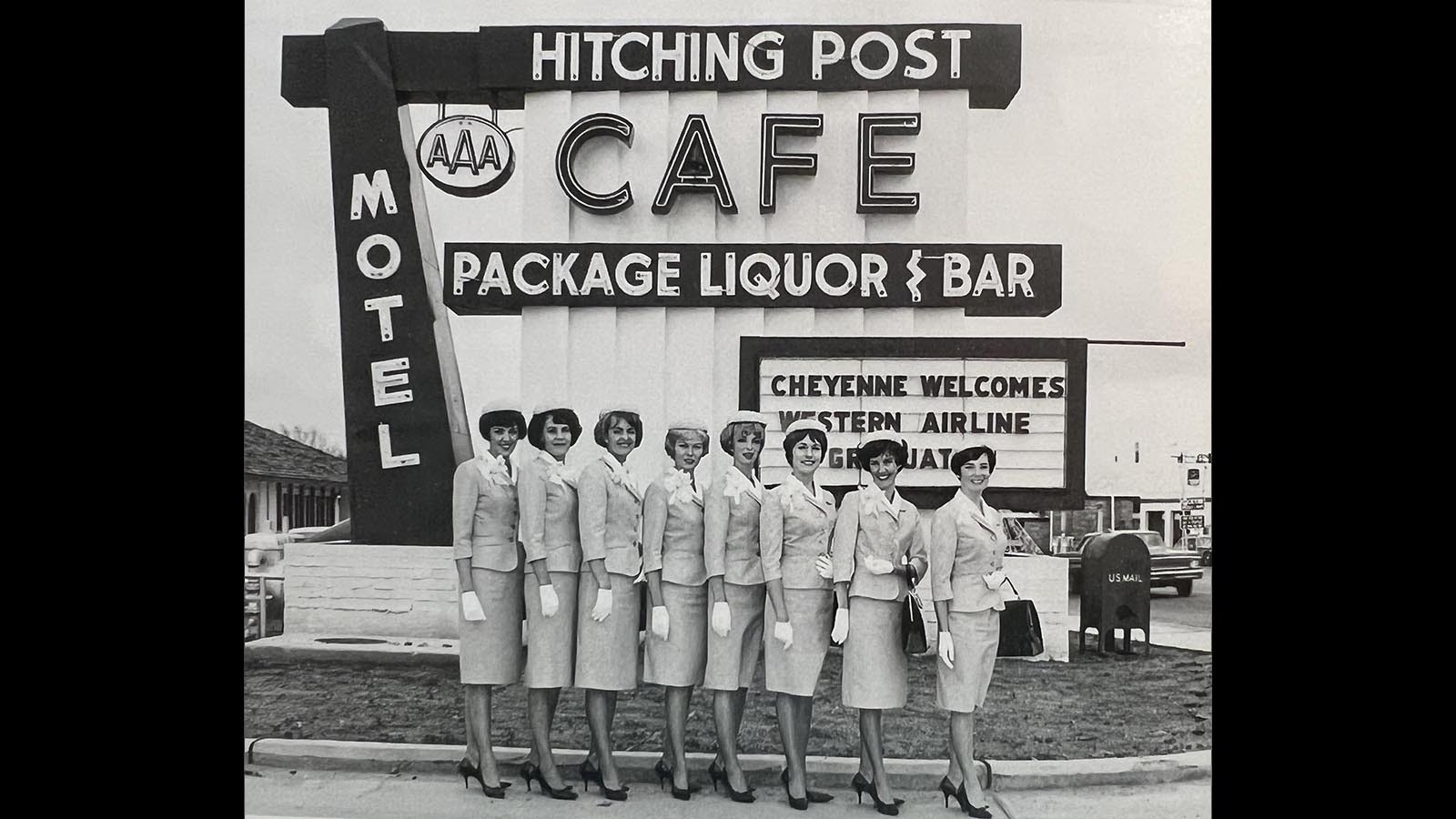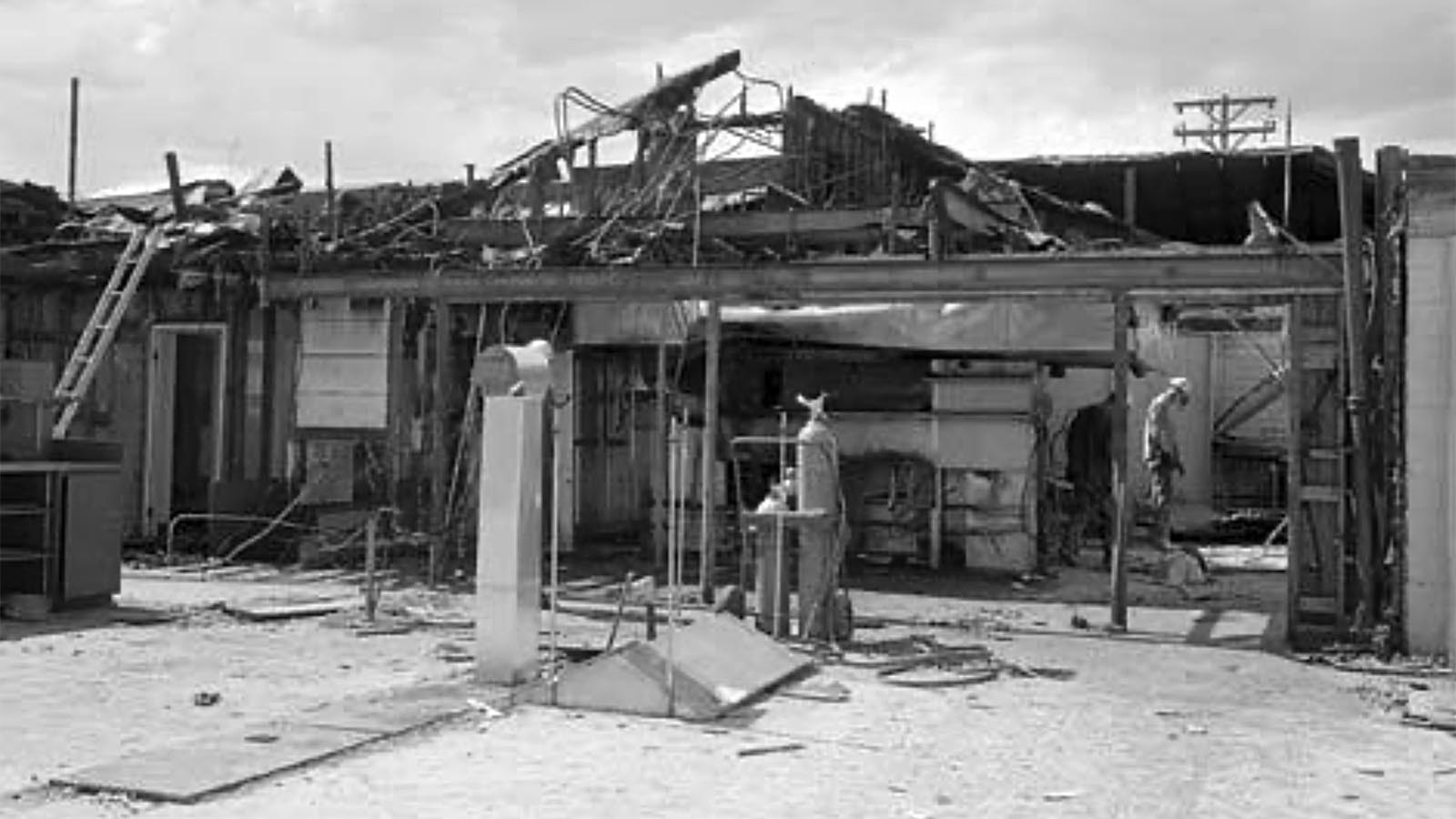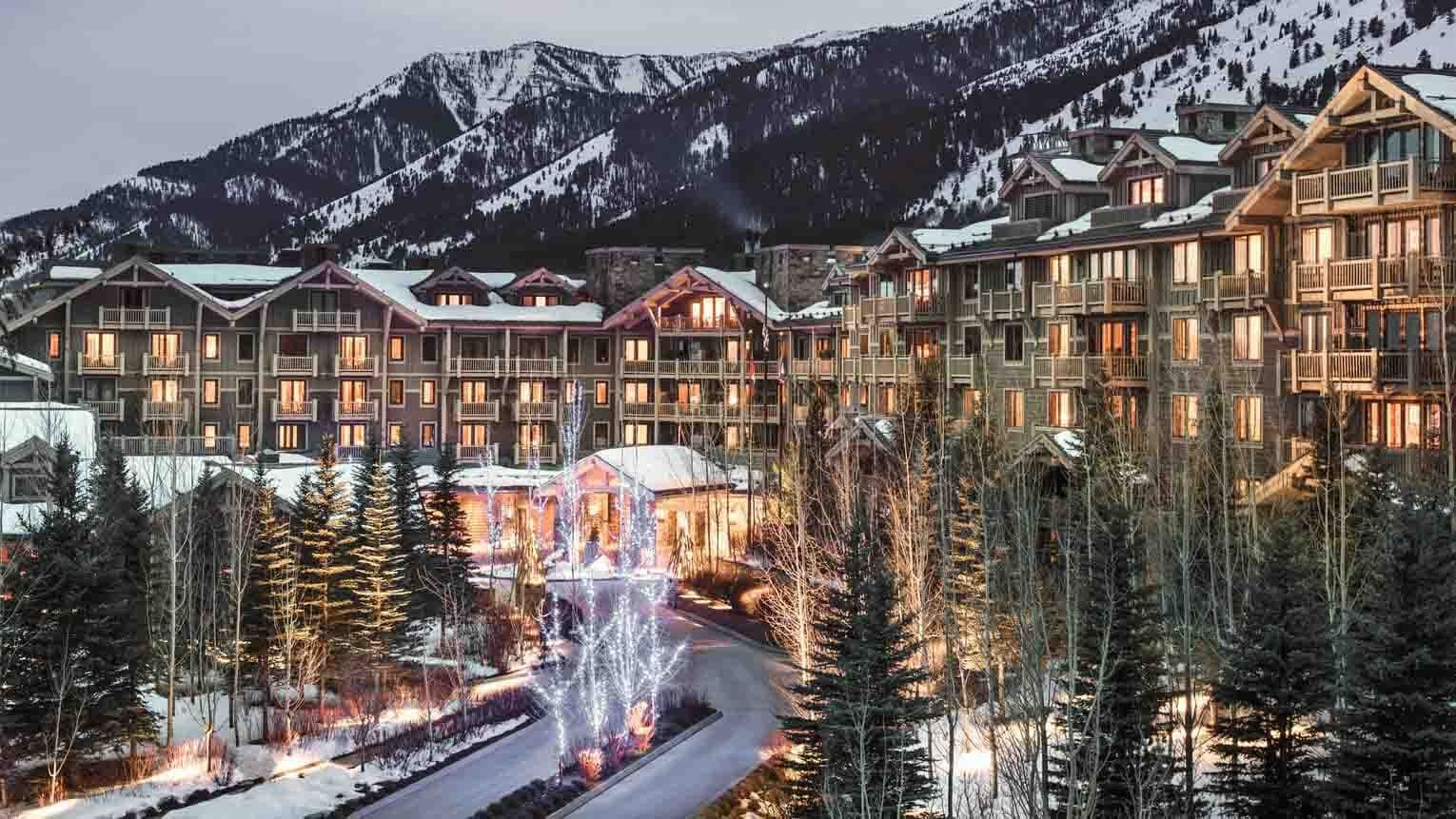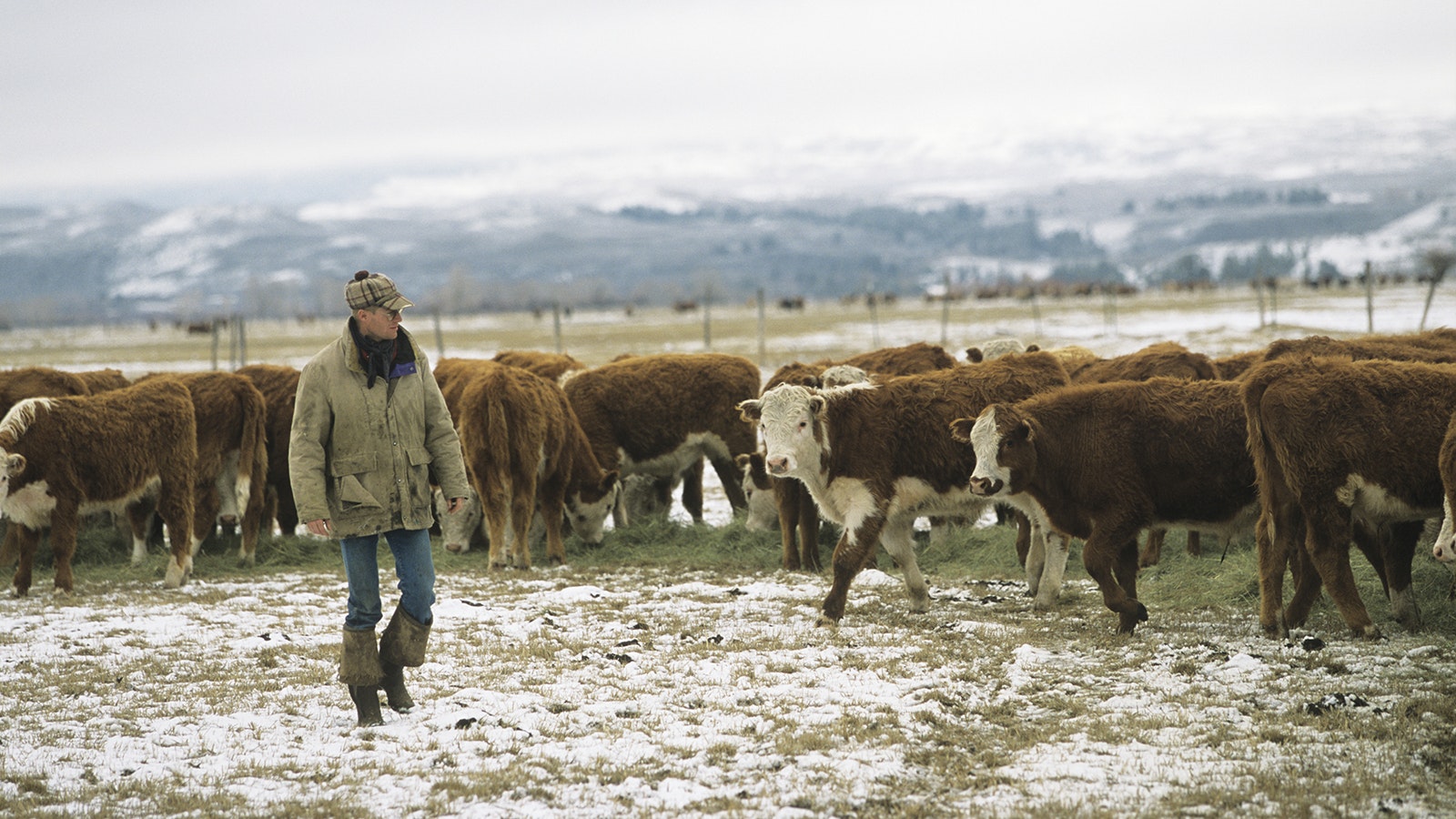It was a time. It was a place. It was an atmosphere. And it was so much more.
Cheyenne’s Hitching Post Inn was destroyed by fire in 2010, but when Cowboy State Daily wrote about the revitalization of the land where the Hitching Post once stood, many shared their memories of the place through Facebook and emails, a testament to a legacy that endures.
Many gathered around the Hitching Post Inn as it burned to the ground in 2010, and it was clear to them that was the end of all hope for ever reviving it.
Among these was Sue Castaneda.
“I just thought of how it affected all of our lives,” she told Cowboy State Daily. “Not only during the Legislature and Cheyenne Frontier Days.”
The Hitching Post was so much a part of everyday life for so many people. It was the place for fundraiser after fundraiser. School competitions were held there. And weddings. People who met at The Hitch loved to get “hitched” there too. And it was a favorite place for state lawmakers to gather during the legislative session.
Castaneda’s first experience with the Hitch was magical.
“I was in FHA and we had to go down there for a state conference,” she recalled. “I was just mesmerized by the place, because the way that it was built — they kept building onto it every now and then — and you could walk and walk and walk and go to this section and to that section. It’s like a hotel in a dream that just doesn’t end.”
When it did finally end, Castaneda knew she had to write about it to help preserve and honor the place it held in everyone’s life.
Switch To The Hitch
The Hitch was not always the favored home for lawmakers during the legislative session. That started out being the Plains Hotel.
But when Sheridan’s Harry Barker took a dislike to the Plains and relocated to the Hitching Post Inn, it was a game-changing opportunity that the Hitch’s hotel manager, Del Peterson, and Harry’s son, Paul Smith, quickly took advantage of.
The next legislative session the two called every Sheridan lawmaker and enticed them all to stay at the Hitch for a mere $5 a night. Then they made sure to exceed their every possible expectation.
As word of Hitch hospitality spread, more lawmakers came to stay there. And that is how Wyoming’s second capitol was born.
Many have since credited the Hitch with creating an atmosphere of camaraderie and congeniality that helped opponents not only move past grudges and become friends, but write better laws.
It was natural for legislators who’d been fighting by day to continue their discussions by night at the Hitch, where the uniform could be much less formal — pajamas, with a nightcap in hand.
“Everybody making laws during the day talked about how they were going to amend the law the next day,” Dan Sullivan wrote in Castaneda’s book about The Hitching Post.
“You may not agree with people and you might get upset or mad with somebody once in a while,” he added. “But very seldom did those grudges last.”
Legislators Loved It
Legislators and lobbyists tended to keep the same rooms from one year to the next, and a whole seniority system developed around that, as well as many traditions. You could count on Jim Hageman and John Hines, for example, to throw a big birthday bash together. The two men had birthdays a year apart and rooms across the hall from each other. It was a tradition that lasted for 20 consecutive years.
The Wyoming Petroleum Association, meanwhile, had suites on the first and second floors of the building, and its doors were always open to anyone and everyone who wanted to wander in for beer and conversation.
Meanwhile, there were grand receptions every night for legislators and lobbyists to mingle while they shared a jingle or two about their hopes for the legislative session at hand.
The backdrop was often lavish at these affairs. Think martini fountains, beautiful fresh flowers and ice sculptures.
At the same time, staff had been trained to make legislators feel at home, down to knowing each and every lawmaker’s name. That happened not through familiarity, but by careful design.
Denise Erikson, who worked the night desk for a few years at the hotel, told Cowboy State Daily that employees were required to take and pass tests on a regular basis, identifying each and every member of the Legislature.
“When you walked through the front door of the Hitching Post, everybody knew you,” Grant Larson recalled in Castaneda’s book. “The waitresses, the maintenance people, people at the front desk, had all been there as long as you had. ‘Good morning, Sen. Larson, how was your trip?’ Every time you arrived, there was always a gift for you and flowers in your room. They treated you like family. It was truly a home away from home.”
Cowboys Loved It Too
The Hitch not only served as Wyoming’s second capitol, it also was a second headquarters for Cheyenne Frontier Days.
In fact, it was so popular at the time, Bloomingdale’s department store catalog featured an exclusive deal combining a three-night stay at the Hitch and Cheyenne Frontier Days as a package.
The Hitch did do the event up right. Banquet waitresses dressed up like saloon girls. A rock and roll band, Ricky and the Redstreaks, was hired to keep everyone entertained.
Rock and roll might seem a strange choice for a rodeo, but as one cowboy put it to Ricky and the Redstreaks, a lot of those doing rodeo had grown up on rock and roll.
“For us to see Ricky and the Redstreaks — it’s refreshing to hear the hits we grew up with along with the country,” the band recalled in Castaneda’s book. “It’s refreshing to hear the hits we grew up with along with the country. Not just get a steady diet of country, get a sprinkling of rock.”
That earned Ricky and the Redstreaks the title Official Rock and Roll Band of Pro Rodeo.
Some 900 to 1,000 cowboys would converge on The Hitching Post each night to party and hear the band play, according to Castaneda’s book.
Of course, there were lots of fights and alcohol, too. But the police would do everything they could not to arrest the cowboys — even down to handcuffing one cowboy on site and instructing waitresses not to give him more than one beer every 30 minutes.
”It was a fun time and a unique place,” Monty ‘Hawkeye Henson’ recalls in Castaneda’s book. “We partied there, and spent millions of dollars there, and had a great time!”

Speaking Of A Great Time
A folk rocker from Hollywood might seem like an odd pairing for the Cowboy State, but Michael DeGreve was another of the figures who was integral to the Hitching Post legend.
“My agent called me up one day and said, ‘What do you think about Cheyenne,” DeGreve told Cowboy State Daily. “And I said, ‘I don’t. Where is it?’”
As his agent described the gig, which included a house and a maid, DeGreve was thinking, “Yeah, OK, and then I can visit a friend in Colorado who is on the way.”
While he was driving to Cheyenne running through a set list that featured The Beatles, the Eagles, and Crosby, Stills and Nash, DeGreve had more than few second thoughts.
“I was thinking how is this gonna work in cowboy country?” he recalled.
But by the end of the week, DeGreve was convinced he wanted to stay in Cheyenne. No contract was written. He and Paul simply agreed they would give each other a little notice if either of their minds changed.
“On a handshake, I was there 30 years, six nights a week,” DeGreve told Cowboy State Daily.
During that time, he made thousands of friends, played a concert with Neil Young, played for the governor — and had the literal time of his life.
“It was just a magical place,” DeGreve said. “All the legislative people stayed there, and I knew them all. We’d all drink. That was back when we could joke about, ‘I was one of only 10 Democrats in the state.’”
Friends still write to DeGreve asking if he would come back to Cheyenne.
And he’s thought about it a time or two. If the circumstances were ever right again, it is something he told Cowboy State Daily he’d consider.
In The Beginning
The Hitch started as a dream. Harry Smith’s father, Pete, had been part of a flood of Eastern European Jews fleeing the Pale of Settlement in Russia.
Pete and his brother Nathan made 18 cents an hour in Omaha, Nebraska, sending what they could back home to support their families and saving as much as they could from the rest. When they heard land was available for next to nothing by homesteading in Wyoming, they outfitted a horse and wagon with things to sell along the way and headed out, stopping at numerous towns along the way, until they reached Cheyenne.
Their plan was to grow potatoes on land 20 miles west of Cheyenne. They also opened a meat-packing plant with a Rabbi Hoffman, too, according to Castaneda’s book.
It took 10 years before they could send for their wives in 1921.
Pete’s wife, who brought 10-year-old Harry with her, died that same year, and the potato farm failed as well.
Pete sold the farm to buy land at the intersection of two major highways. This place was considered way out in the country at that time, but unlike the potato farm, Pete’s Lincoln Auto Court was successful, with 24 individual units to start.
Harry And Paul
Harry, who had a civil engineering degree, built on his father Pete’s dream, increasing the room count to 60, adding both showers and baths. This was a top-notch amenity for the day, and a snap for Harry, who had a civil engineering degree.
Harry had always been something of a prodigy. When he came to America, he spoke no English, according to Castaneda’s book. He knew only Hebrew. Not only did he learn the English language very quickly, he completed grade school through high school in a mere six years.
In 1946, when Best Western started up, the Hitching Post Inn became a charter member, and would maintain a gold crown status — top 20% — throughout Harry’s life.
Harry, and his wife Mildred, continually added to and updated their hotel. By the time Harry’s son Paul bought it from Harry, it included lavish restaurants, meeting, lounge and entertainment facilities, indoor and outdoor swimming pools, and a health club, as well as some 250 rooms, many of which were quite lavish.
It had been renamed the Hitching Post Inn when Harry and Mildred added the restaurant of the same name, but to keep top status with Best Western, Paul split the Lincoln Court rooms off of the hotel in 1991. The smaller, older rooms had become too small for a Best Western hotel.

Paul’s Time In The Sun
If Pete had been the dreamer and Harry the engineer, Paul was the Hitch’s heart and soul.
He instilled loyalty in people they sometimes didn’t know they had, Nan Brown recalled in Castaneda’s book.
“He’d say ‘do this’ or ‘do that,’ and you’d just do it,” she said. “One time he needed to decorate 21 trees for the Symphony Ball auction. He called me and said, ‘Nan, you’ve got that relief society thing in our church. Call them and get this done.’ ‘I said, ‘Paul, I can’t do it.’ He said, ‘Yes you can. Call me back when you’ve got it figured out.’
“So I called a few women and we decorated 21 trees for the Symphony Ball. He’d just pull people in to do those things.”
But here was the fatal flaw that ultimately did the Hitch in. Paul and his father had a falling out after Paul told his father he was gay. While Paul had had girlfriends growing up, he told a close friend, “No matter what you try to do to feel differently, you just don’t.”
Paul ran away to New York for about a year and a half at age 37 after things became too much in their strained relationship. But he came back when he learned his father was trying to sell the Hitching Post Inn to a private buyer.
With Paul, Mildred and his sister Evelyn’s shares totaling more than Harry’s by 1%, though, Harry had to concede and sell the Hitching Post Inn to his son instead. But Paul paid a steep price in the millions for it — and at 1981 interest rates of 18%. It was a floating note, so that soon rose to 20%.
Paul made $1 million his first year, but the interest on the loan was $1.2 million.
This crushing debt kept Paul from making many of the renovations the hotel needed at the time. Even after a banking crisis allowed Smith to get better terms for the loan, it would still prove the Hitching Post downfall.
When Mildred died, she begged her daughter and Evelyn to promise to keep the hotel in the family. But Paul, when he died from cancer, made her promise the opposite. He knew there was only one way out of all the debts, and that was for his sister to sell the hotel.
That was everything Paul summed up in one last act of love for his sister. He knew the hotel was still millions in debt, and he wanted his sister to be able to be a hands-on mom to her children.
Paul’s lifelong friend, Carvel Brown, meanwhile, summed up Paul Smith’s life this way in Castaneda’s book, and it’s what underpinned everything about Paul and how he ran The Hitching Post.
“He was always searching for the ‘gems of life,’ truths that would help people live life happier,” Brown recalled. “Any time he discovered one, it was his mission to share it with everyone he cared for. If we would all emulate his example just a little, what a grand world we would be living in.”
Contact Renée Jean at Renee@CowboyStateDaily.com
Related:
This Time We Mean It: Cheyenne's Hitching Post Inn Is Really Coming Back
Cheyenne Starts Work on New 80-Acre “Hitching Post Plaza”
Wyoming Landmark “Hitching Post Inn” Purchased & To Be Demolished in Weeks; New Hotel Planned

